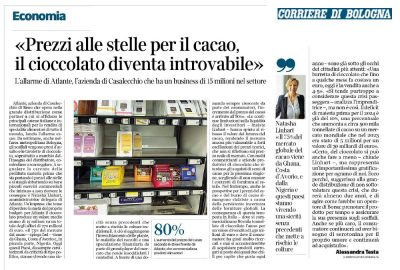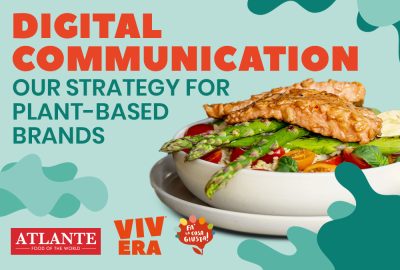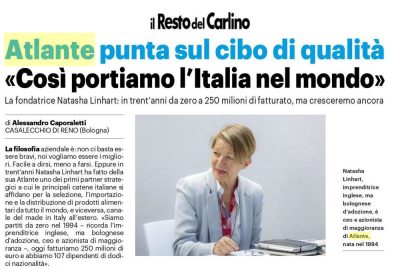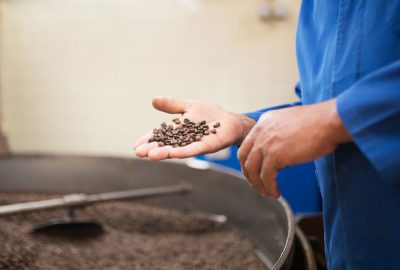Atlante
News
The value of a sustainable supply chain

29 October 2021
Sustainable development and the role of food industry: these are the issues tackled by the Chief Supply Chain, Logistics & IT of Atlante – within the interview on the green turn required by supply chain.
What is sustainable development and what are its implications for businesses?
“Sustainable development is a development that allows the present generation to satisfy its own needs without compromising the ability of future generations to satisfy theirs“. In this way, the 1987 Brundtland Report outlined a first, albeit very topical, definition of the concept of sustainability.
This brief description is sufficient to understand that when referring to the commitment that organisations dedicate or should devote to sustainability in its many forms (environmental, social and economic), should not be limited to a generic definition of these issues or a philanthropic approach to social issues. In fact, attention to sustainable development implies the assumption of fundamental and very specific responsibilities. Therefore, a broader concept of “value creation” is more important than the traditional one, which has as a medium-long term objective not only the satisfaction of the “closest” stakeholders at an economic-financial level, such as investors and shareholders, but also of all those on whom, directly or indirectly, the business activity has an impact such as customers, consumers, suppliers, employees and collaborators. Some currents of thought include, in addition to the community and different social groups, the environment.
What are the sustainability guidelines to refer to?
The best known guidelines that define common and shared objectives are represented by the Paris Agreement, which establishes a global framework to avoid dangerous climate change and the 2030 Agenda for Sustainable Development as a program of action for people, the planet and prosperity, signed on 25 September 2015 by the governments of the 193 member countries of the United Nations and approved by the UN General Assembly. The latter focuses on 17 Sustainable Development Goals (SDGs), which represent an urgent call for action by all countries in a global partnership. This document formalises a fundamental awareness for the contemporary world: the need to end poverty and other deprivations must go hand in hand with strategies to reduce inequality and stimulate economic growth, all while addressing climate change and working to preserve oceans and forests. A real interconnection of social, economic and environmental issues with equal priority and urgency.
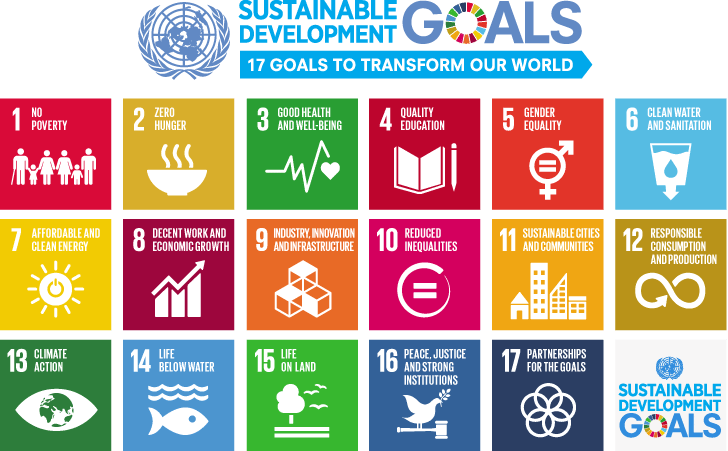
The most recent European regulations on the subject concern the EU Farm to Fork Strategy, the Circular Economy Plan (Corporate Sustainability Reporting Directive), the National Recovery and Resilience Plan which is part of the Next Generation EU (NGEU) program, the Recovery and Resilience Facility (RRF) and Council Directive 92/106 / EEC of 7 December 1992 (establishing common rules for certain combined transportation of goods between Member States).
There are also proposals and indications of industrial groups which, in the case of their leadership, end up becoming standards for the reference supply chains.
As regards calculation systems for verifying and monitoring the level of achievement of the objectives, the tools and indicators are numerous and not always comparable.
What can be the role of the food industry in the “construction” of sustainable development?
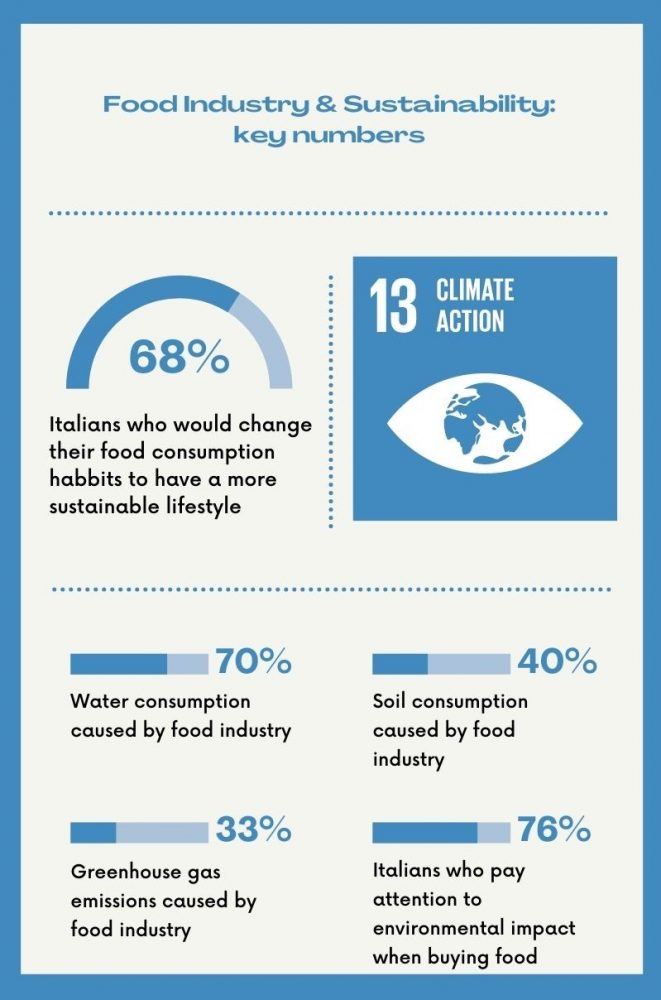
According to the UN and WWF, the food industry is responsible for 70% of water consumption, 40% of land consumption, one third of global greenhouse gas emissions, of which 71% is attributable to agriculture. Furthermore, even if most of the emissions occur during the production and transformation processes, the impact of the related transport worldwide by land, sea and air remains critical.
Nor should we overlook the fact that in the food sector environmental and social issues are very connected: today 3 billion people suffer from malnutrition and over 800 million are in a state of serious insecurity.
In this sector even more than in others, therefore, sustainability opens up a new strategic-competitive perspective to companies in which innovation represents a decisive lever. All 2021 sustainable Food and Beverage trends place an increasingly informed, aware and involved consumer at the centre: a growing number of consumers prefer companies that are dedicated to environmentalism. This trend is supported by the results of the Altroconsumo survey which show that Italians are strongly inclined towards adopting behaviours that contribute to the protection of the planet. 76% say they pay attention to the environmental impact of their food choices and 68% say they are willing to change their habits by promoting a greener behaviour.
How is sustainability in Supply Chain Management approached?
If it is true that the sustainability of a product cannot be separated from that of the company that produces it, then a responsible company must monitor all its own processes and activities, by ensuring compliance with ethical and safety standards, transparency, quality and generating value for all the players involved, along the entire supply chain.
With particular reference to Supply Chain Management, the main trends in progress concern: the development of a responsible and sustainable supply chain, platforms and vehicles of the latest generation (photovoltaic systems, energy saving, alternative fuels such as electricity, liquefied natural gas (LNG), hydrogen, hydrotreated vegetable oil (HVO) ), optimisation of loads and routes, the transfer of goods from road to sea and rail, circular economy, eco-sustainable and reusable packaging and the reduction of food waste (according to the United Nations Environmental Program about one third of the food produced in the world is lost or wasted).
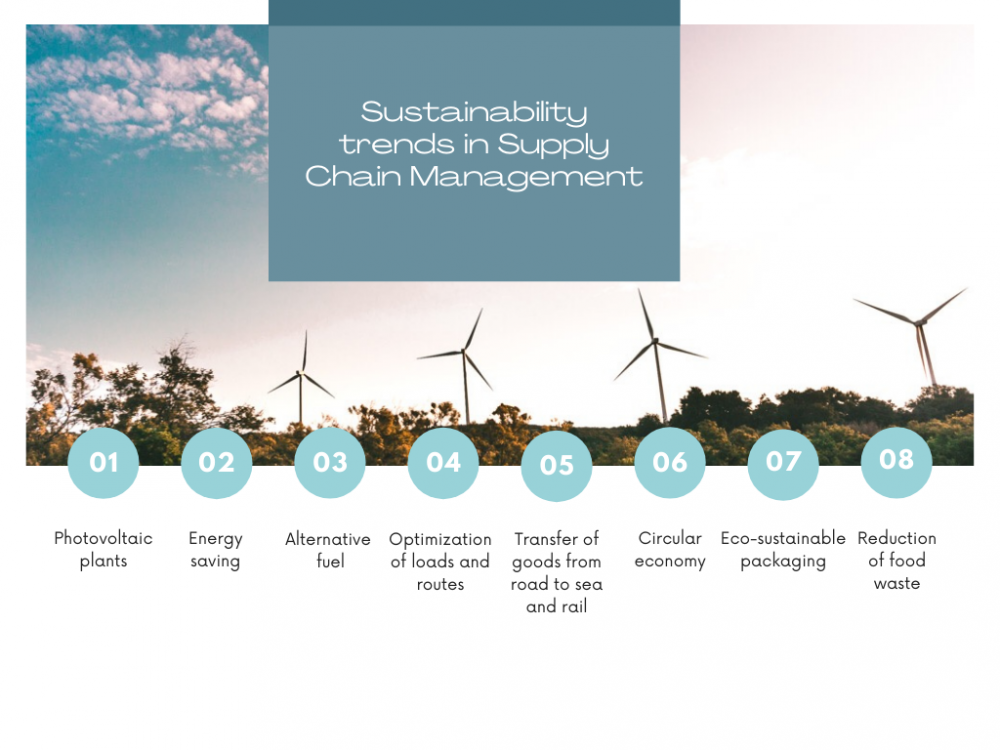
The most innovative and sustainable organisations are growing more and faster because this issue is increasingly present on the agenda of investors and policy makers. The green transition requires substantial financing with public funds but also with private capital which, according to the European Commission, must be oriented towards projects that favour “sustainable economic growth”. Sustainable investments are having an explosive surge and in ten years the value of the shares of companies committed to sustainability has tripled.
What projects is Atlante developing in order to support and promote sustainable development?
Atlante carries out its business activities with a continuous performance improvement, not only in the economic sphere but also in terms of environmental and social impact. In fact, in close collaboration with leading associations and organisations and with the precious contribution of its prestigious partners and customers, in its role as 5PL and amplifier of the actions of the supply chain, it is already very committed to numerous and concrete projects aimed at undertaking a path that goes more and more in the direction of sustainable growth.
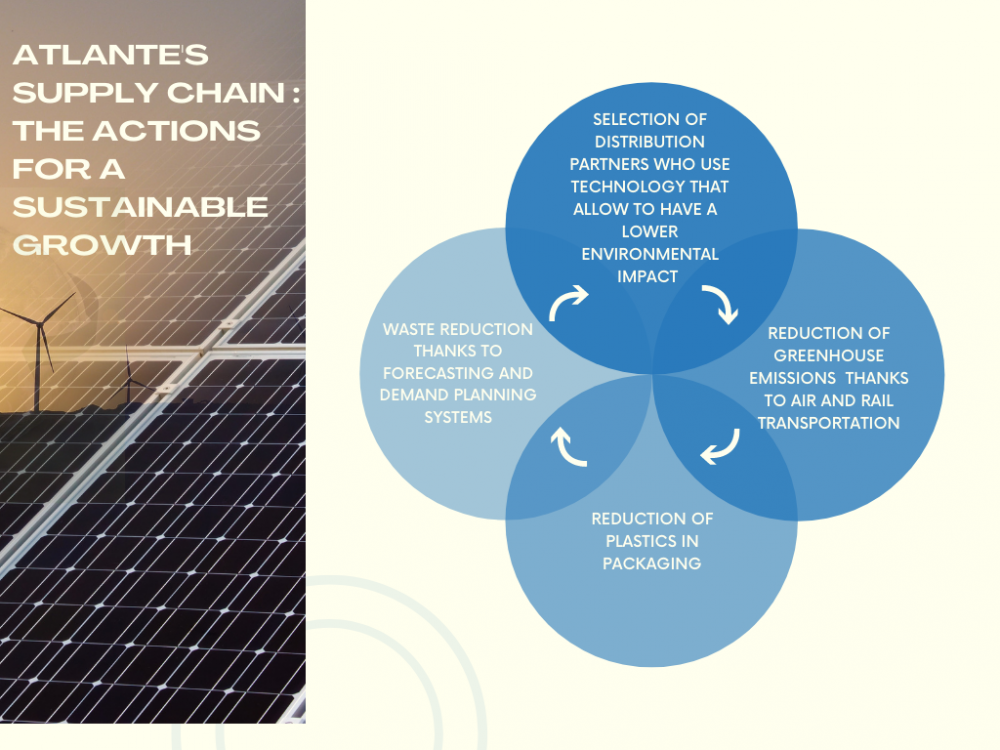
Among these, the main ones are: giving preference to distribution partners who use technologies designed to significantly reduce their consumption and polluting action – with 90% less NO2, 95% less PM and, if biomethane is used, 95% less CO2 than diesel; reducing CO2 emissions by transferring goods from road to intermodal transport and rail as in the case of about 2500 trips per year in imports from Northern Europe or exports to Switzerland which lead to an improvement of over 20%; reducing CO2 emissions by transferring goods from road to sea as in the case of about 2000 trips per year in exports to the UK which lead to an improvement of over 30%; reducing the use of plastics and cardboard in packaging; optimising loads, routes and shipments through the introduction of TMS (Transport Management System); reducing waste with the introduction of Forecasting and Demand Planning systems; and selecting the latest generation of logistics platforms and fleets.

